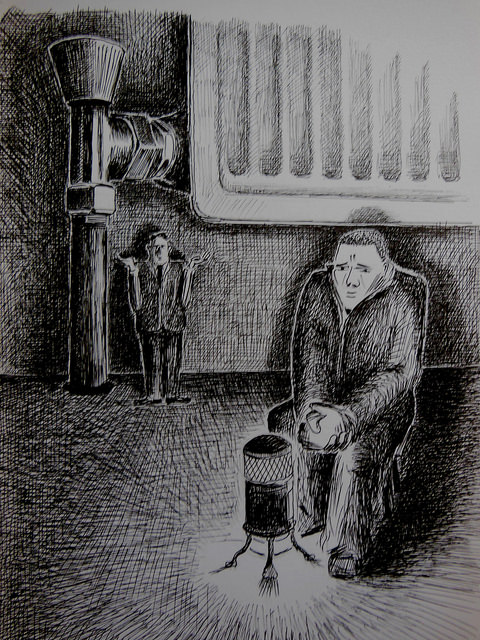
February 16, 2015, by Public Social Policy
What is the impact of austerity on individual attitudes and ‘lived experience’?
By Ruth Read
On 16 January 2015 the Social Policy Association ran a workshop at the University of Leeds entitled “Austerity, Welfare and Citizenship”. The workshop highlighted some complex, troublesome and neglected aspects of the austerity story.
Ruth Patrick described findings from her qualitative research tracking 15 claimants from three groups (young, lone parents, disabled people) over 18 months. Her findings challenge the “scrounger” stereotype of welfare claiming as a ‘lifestyle choice’, by showing the harsh realities involved in surviving on benefits. In a participatory approach to research, some of the participants set up Dole Animators and made a film about their experiences.
Karen Young and Kainde Manji are both researching the effects of reforms to disability benefits. Karen discussed implications (positive and negative) of the shift to personal budgets for care for disabled people’s rights and care provision. Kainde shared findings of a qualitative study into experiences of disabled people in Scotland, highlighting the negative effects of the benefit assessment process and conditionality on citizenship rights, behaviour and isolation.
Looking at austerity in Hong Kong, Tat Chor Au Yeung discussed how the HK authorities had responded to recession with a series of short-term, individualistic measures transforming the relationship between the state, market and citizens. This “expansionary austerity” results in reduced spending but an increase in populist short-term relief measures. The effect is to shift responsibility further from the state to the market, and from citizens to consumers, intensifying and legitimising inequality in the process.
Gareth Young is exploring the use of housing policy to control behaviour, in the context of the 2011 riots. He presented findings from fieldwork on the experiences of street-level bureaucrats in housing management and discussed some of the implications of re-classifying housing as a conditional benefit rather than a right, including the stigmatising effect of the policy shift on already marginalised communities.
The final presentations focused on the impact of austerity on younger women. Silvia Soriano presented findings from a qualitative study of lone mothers, which highlighted differences based on economic and social circumstances and the age and number of children. As welfare conditionality appears to push lone mothers further from the jobs market, and with paid work increasingly central to the concept of a ‘good citizen’, lone mothers are facing multiple and increasing disadvantages. Silvia, along with some of the other presenters, commented that although participants rejected the scrounger/shirker stereotype of welfare claimants, they accepted the stereotype for ‘other claimants’. This was also a theme of the final presentation by Vicki Dabrowski whose research explores the impact of austerity on young women’s future aspirations, and their understandings of fairness and equality. Despite economic and educational differences between some of the participants, there was a common acceptance of individual responsibility and a lack of recognition of social barriers.
One of the themes common to many of these research projects was the divergence between the impact of austerity-related policies and attitudes about individual responsibility. Those at the sharp end of the austerity stick often express a ready acceptance of the striver/shirker stereotypes which dominate the popular press….. just as long as they can make clear that they are strivers. Efforts to reframe the austerity story ignore these attitudes and experiences at their peril.
Image by 70023venus2009 (Flikr)
This work is licensed under a Creative Commons Attribution-NoDerivatives 4.0 International License.
No comments yet, fill out a comment to be the first


Leave a Reply